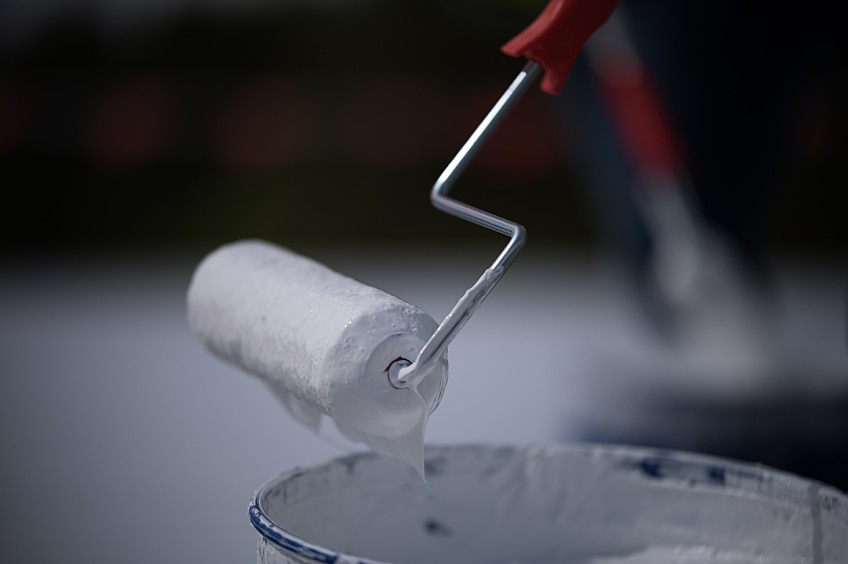Roof coatings have become a popular option among contractors and building owners for extending the life of a structurally sound roof. Sometimes referred to as liquid-applied roofing systems, these solutions are made up of multiple components that can work together to form a seamless membrane — which can help significantly lengthen the lifespan of an existing low-slope roof.
Here are answers to some of the most common questions asked about the uses and effectiveness of restoring a roof with liquid-applied coatings:
1. Why Might You Choose a Roof Coating over a Roof Replacement?
In many cases, there are advantages to choosing a coating solution over a full roof replacement. Because the coating system is applied over the top of the existing structurally sound low-slope roof, there is no labor required for a tear-off and no old roofing materials to dispose of — a benefit for both the building owner and the environment. Once the roof coating system is installed, it forms a seamless roofing system that can deliver years of protection.
2. What Type of Coating Is Best for a Roof?
Many factors go into deciding which coating is right for a particular roof, but one of the most important considerations is the existing roof type. Not all coatings are suited for all roof types. Location and climate can also play a role.
There are several coating options for restoring existing roofs, including acrylic, silicone, and polyurethane coatings — each suited to specific roof types. If you're unsure which coating is the right one for your project, knowledgeable technical service reps from GAF can help.
3. Can You Coat an Old Roof?
Most of the time, you can coat aging roof systems that are structurally sound. Restoring structurally sound old roofs and extending their service lives is one of the reasons coatings have become popular among building owners.
A thorough inspection can confirm if the existing roof is a good candidate for a roof coating. The next step is to prepare the surface — this involves making required repairs, removing and replacing any any moisture-saturated substrate, reinforcing seams, and cleaning the surface to ensure the coating system will adhere properly (an adhesion test is typically required) to the old roof.
4. Can You Put a Roof Coating on Shingles?
GAF and the Asphalt Roofing Manufacturers Association (ARMA) "strongly [advise] against the application of any type of field-applied coating over installed asphalt shingles." Coating over asphalt shingles can degrade the shingle and cause problems with ventilation and airflow, leading to moisture build-up in the roof.
5. How Much Does It Cost to Apply a Roof Coating?
Costs for coating a roof vary based on roof size, amount of substrate preparation required, type of coating system selected for the restoration, as well as the number of coats and the application rate used. Once these factors have determined the amount of product needed and product cost, you will need to factor in the cost of labor to prep and install the coating.
This kind of restoration can provide cost savings over a roof replacement, as well as potential tax benefits. Because some coatings are not considered to be a new roof installation, building owners may be able to expense the cost of the coating during the year it is applied instead of depreciating the cost over the life of the system. Building owners should contact their financial advisors to discuss whether these benefits apply to their particular situation.
When installed by commercial GAF certified contractors*, many roof coating systems may be eligible for enhanced warranty or guarantee protection for added peace of mind. Contact a member of the gaf team for more details.
*Contractors enrolled in GAF certification programs are not employees or agents of GAF, and GAF does not control or otherwise supervise these independent businesses. Contractors may receive benefits, such as loyalty rewards points and discounts on marketing tools from GAF for participating in the program and offering GAF enhanced warranties, which require the use of a minimum amount of GAF products. Your dealings with a Contractor, and any services they provide to you, are subject to the Contractor Terms of Use.

